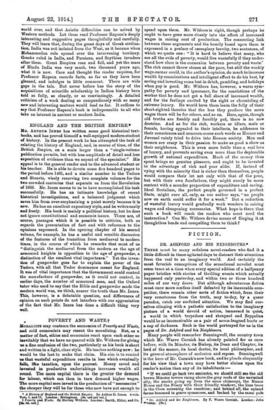ENGLAND AND THE BRITISH EMPIRE.•
Ma. ARTHUR LNNEB has written some good historical text- books, and has proved himself a well-equipped modern student of history. In the present work he has attempted the task of relating the history of England, and, in course of time, of the British Empire, on a scale larger than a "single-volume publication permits, but with less amplitude of detail and less exposition of evidence than we expect of the specialist." His appeal is to the general reader and to the advanced student or his teacher. He is able to devote some five hundred pages to the period before 1485, and a similar number to the Tudors and Stuarts, wisely reserving two complete volumes for the two crowded centuries that separate us from the Revolution of 1688. Mr. Innes seems to us to have accomplished his task successfully. He has an intimate knowledge of recent historical investigations, and a balanced judgment which saves him from over-emphasizing a point merely because it is new. He has an excellent expository style, and he writes easily and freely. His book is mainly a political history, but he does not ignore constitutional and economic issues. There are, of course, passages which it is possible to criticize, both as regards the presentation of fact and with reference to the opinions expressed. In the opening chapter of his second volume, for example, he has a useful and sensible discussion of the features of the transition from mediaeval to modern times, in the course of which be remarks that most of us "distinguish the mediaeval from the modern as the age of armoured knights in opposition to the age of gunpowder, a distinction of the smallest vital importance." Yet the inven- tion of gunpowder goes far to explain the power of the Tudors, with all that Tudor dominance meant for England. It was of vital importance that the Government could control the manufacture of gunpowder, as it could not control, in earlier days, the number of armoured men, and the Oxford tutor who used to say that the Bible and gunpowder made the modern world was, we think, nearer the truth than Mr. limes. This, however, is a debatable question, and differences of opinion on such points do not interfere with our appreciation of the fact that Mr. limes has done a difficult thing very well.


































 Previous page
Previous page